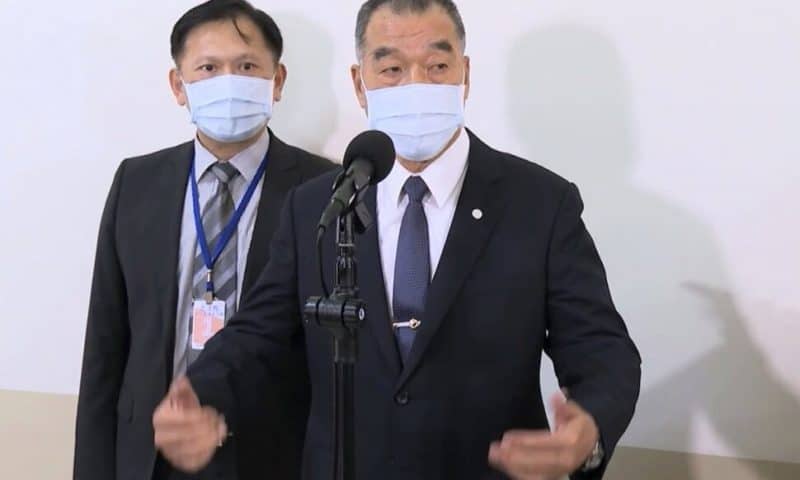Beijing issued perhaps the clearest threat yet that it’s willing to use force to reunify what it considers a renegade province as the U.S. ramps up military and diplomatic support.
China on Thursday lashed out at Taiwan after its president confirmed the presence of U.S. military trainers on the island nation, issuing new threats of apparent military action at a time of perhaps unprecedented tensions across the Taiwan Straits.
“The more these people collude with external forces, the faster the punishment from the mainland will arrive,” the English-language Global Times, considered a mouthpiece for the Chinese Communist Party, wrote in a scathing op-ed published Thursday morning. “As the secessionist forces on the island seek support and protection, at the same time, they are also pushing the mainland to decide to resolve the Taiwan question by force.”
Other officials in China expressed similar outrage. A spokesperson for its State Council Taiwan Affairs Office vowed Beijing would afford “zero tolerance” toward the idea of Taiwan independence, state news service CGTN reported. Beijing considers Taiwan nothing more than a renegade province of the mainland.
In an interview with CNN published late Wednesday, Taiwanese President Tsai Ing-wen confirmed prior speculation that the limited U.S. presence on the island included a small group of uniformed military personnel tasked with helping Taiwan’s forces bolster their own defenses. The Wall Street Journal reported recently the troops included a small group of Marines and special operations forces. Tsai did not say how many are there.
China’s latest threats of a military invasion match prior rhetoric aimed at Taiwan but come at a time of growing concern in the West that Beijing feels new pressure to act. American officials and analysts believe China’s military has never been more prepared to execute some form of military intervention, as its government has explicitly stated it is willing to do, and that growing international attention on the Taiwan issue means the opportunity is limited to respond with force.
“To avoid that disastrous outcome, the U.S. must recognize that China is a military threat — and conflict could come soon,” Elbridge Colby, a former top Pentagon official for strategy development, wrote in an op-ed in The Wall Street Journal published late Wednesday.
Others wonder whether Beijing is prepared to endure the international condemnation and potentially crippling economic effect that would follow a unilateral military action.[
China has previously claimed the presence of U.S. troops in Taiwan violates the set of agreements that has created a fragile diplomatic balance regarding the island nation since Washington officially recognized Beijing in 1979. The U.S., however, sees bolstering Taiwan’s own defenses as critical to its policy of supporting the isolated democracy, recognized only by a dozen or so minor countries globally.
Both the Trump and Biden administrations stepped up that support while also strengthening the U.S.-led military presence in the region, including provocative naval exercises near China’s maritime borders in international territory it considers its own. Beijing routinely cites these exercises – ostensibly to keep open international waterways – as evidence the U.S. and its allies challenge China’s sovereignty.
This week, Secretary of State Antony Blinken called on U.N. nations to allow Taiwan greater participation in the international body, issuing a statement that also drew fury from China.

